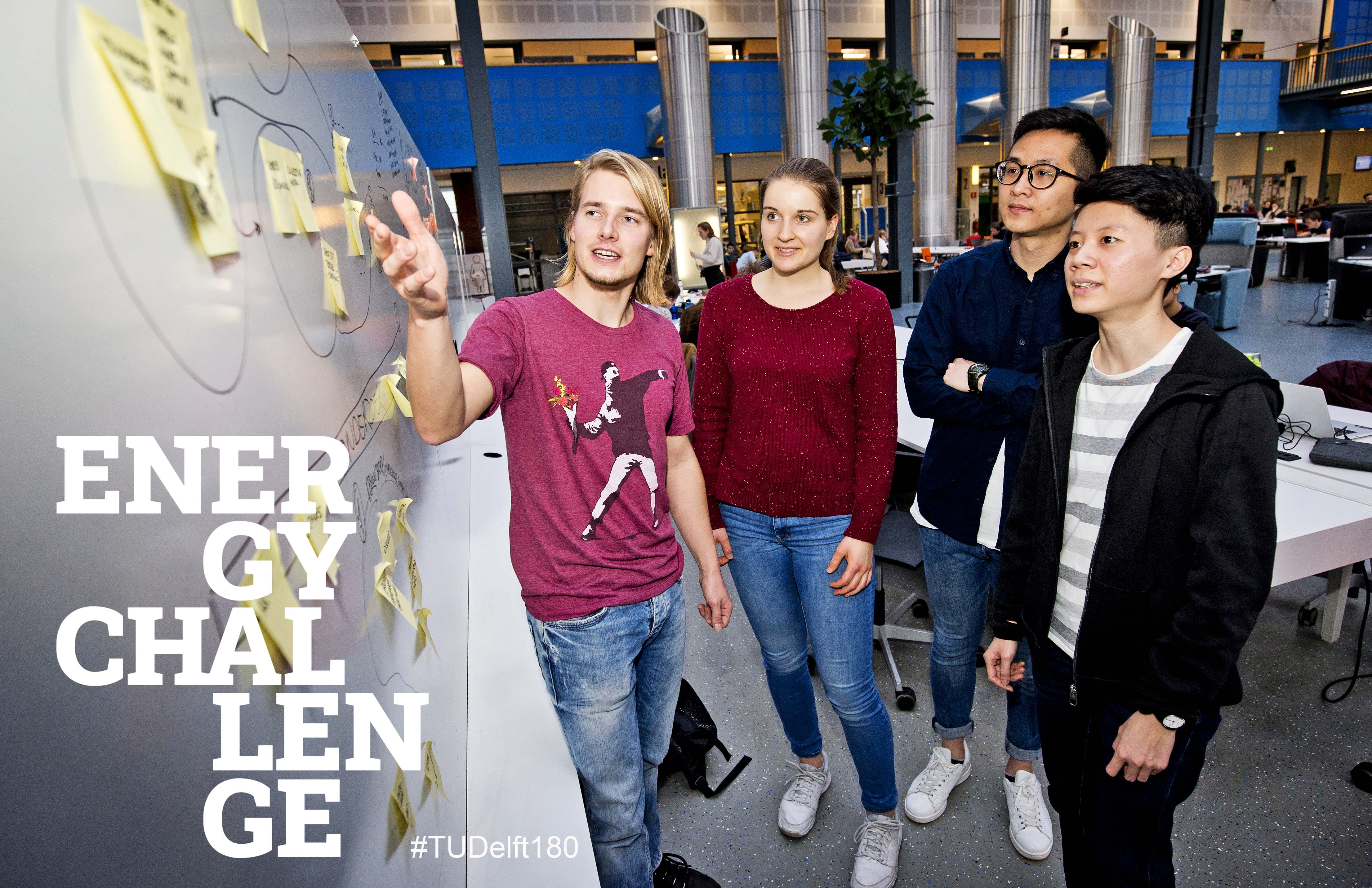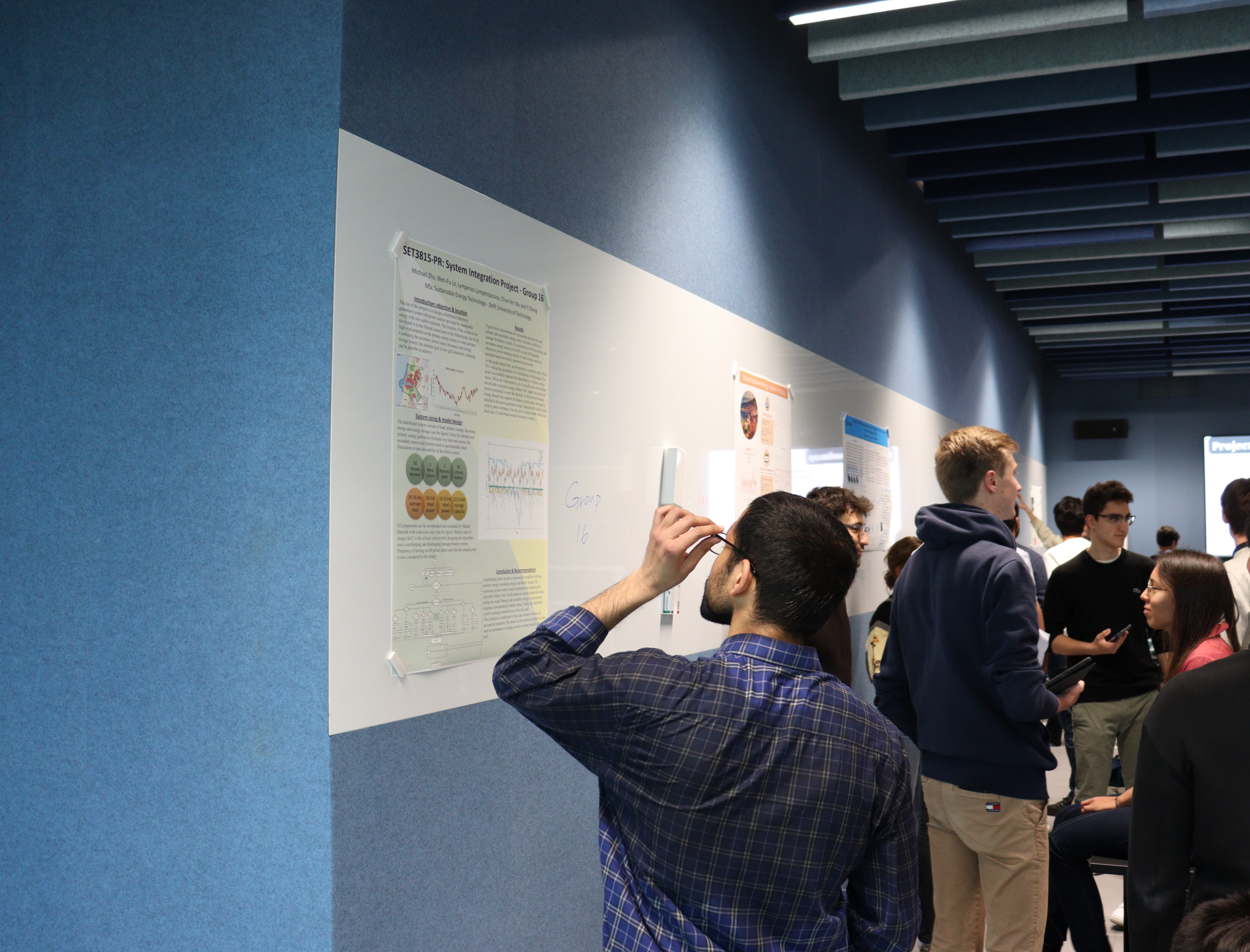Energy transition at the heart of TU Delft's education programme
On Thursday 9 June, the TU Delft campus will be buzzing like never before. On that day, students will be presenting their ideas on how to accelerate the energy transition. Over the past six months, more than 15,000 TU Delft students have followed a course on energy transition. This has resulted in a large number of ideas and prototypes that can be seen on 9 June during the Energy Challenge Event, which is part of TU Delft's anniversary year.
This year marks TU Delft's 180th anniversary; an excellent occasion to take a closer look at the role of the university in accelerating the energy transition. Kornelis Blok, chairman of the anniversary committee and co-author of the most recent IPCC report, makes no bones about it. ‘Let's start by saying that three words are very important: accelerate, accelerate, accelerate. That is the mantra of this anniversary year, and all the years to come. TU Delft, with approximately one thousand energy scientists, is one of the largest research institutes in Europe in this field. Whether it is wind and solar energy, hydrogen, new synthetic fuels or nuclear energy: we have all the expertise we need to make the world a greener and more sustainable place.’
Energy transition in education
To illustrate the urgency of the energy transition, and the need to accelerate it, TU Delft has also given the subject a prominent place in education. Rob Mudde, who is responsible for education within the Executive Board of TU Delft, has this to say about it: ‘The next generation of TU Delft engineers will be crucial to solving the global challenges we are facing. In our courses, we are working hard to prepare them for this. The Energy Challenge is a good example. Over the past six months, some 15,000 students followed a course that focused on speeding up the energy transition. This has made the energy transition a real part of the curriculum. Not as a one-off lecture or as an elective, but for an actual grade. For example, all bachelor students follow an energy transition oriented course. We mean business and not without reason: acceleration is imperative. So we walk the talk.’
For one of the courses in the Sustainable Energy Technology master's programme, students chose a location somewhere in the Netherlands for which they designed and modelled an energy system that runs entirely on renewable energy sources. In addition, the students were asked to make a video every week in which they shared the progress of their project.
Modular solar panels and a wave energy accumulator
Students from the Faculty of Industrial Design Engineering (IDE) have recently been working on the future of used solar panels. Industrial designers shape the world around us, from games that help people with dementia to iconic water bottles to communal sanitation facilities in India. Now some of them set to work on the question what to do with solar panels when they reach the end of their life. Are we able to recycle them? Can we design modular solar panels? And what is the role of aesthetics in this process?
In addition to energy extraction from sources such as sun and wind, energy storage is also a major challenge. The ideal would be a technology that provides a solution for both challenges simultaneously, i.e. extraction and storage. Our first-year Mechanical Engineering students therefore set to work on designing a Wave Energy Accumulator (WEA), in which the energy from the movement of waves is converted into rotational energy of a flywheel. The students did not only work on the design, but also on testing and manufacturing it. On Thursday 9 June, the final verdict will be given, as we find out which student team (100 teams, 600 students) has designed the best wave energy accumulator. The competition takes place at the Bouwcampus, from 10.00 to 16.00 hours.
Energy and circularity
With many scientists engaged in energy research, accelerating the energy transition has now also become a permanent part of education. Frederieke Backelandt, board member of study association Technologisch Gezelschap, describes this new trend as follows: ‘Last year we noticed that more attention was paid to the energy transition within our bachelor courses. In addition, a new curriculum for our master's in Chemical Engineering will go into effect next year; in it, students can choose tracks in Energy and Circularity’ How will the energy transition affect their field of study? ‘We think that as chemical engineers we can make a major contribution to the energy transition,’ explains Backelandt. ‘The possibilities of using the energy in chemical substances are enormous. In addition, we have noticed that chemical companies are also becoming more and more involved in the energy transition. Although major steps still have to be taken, we are increasingly aware of this fact.’
More information
Record-breaking temperatures, extreme drought, floods, melting sea ice, high winds: radical weather events are becoming more frequent and have a devastating effect on our lives. If nothing is done, our planet will become unlivable over time. TU Delft has all the expertise to do something about this and accelerate the energy transition. Scientists and students invent, design, make and implement. They do all that with the characteristic TU Delft “can do” mentality. Would you like to know more about the brand new energy ideas of our students? Then come along on 9 June during the Energy Challenge Event.
Meer informatie
For questions about the Energy Challenge, and accelerating the energy transition, please contact:
- Dave Boomkens, Science Information Officer Energy Transition –D.J.Boomkens@tudelft.nl / 06 34 08 14 61

